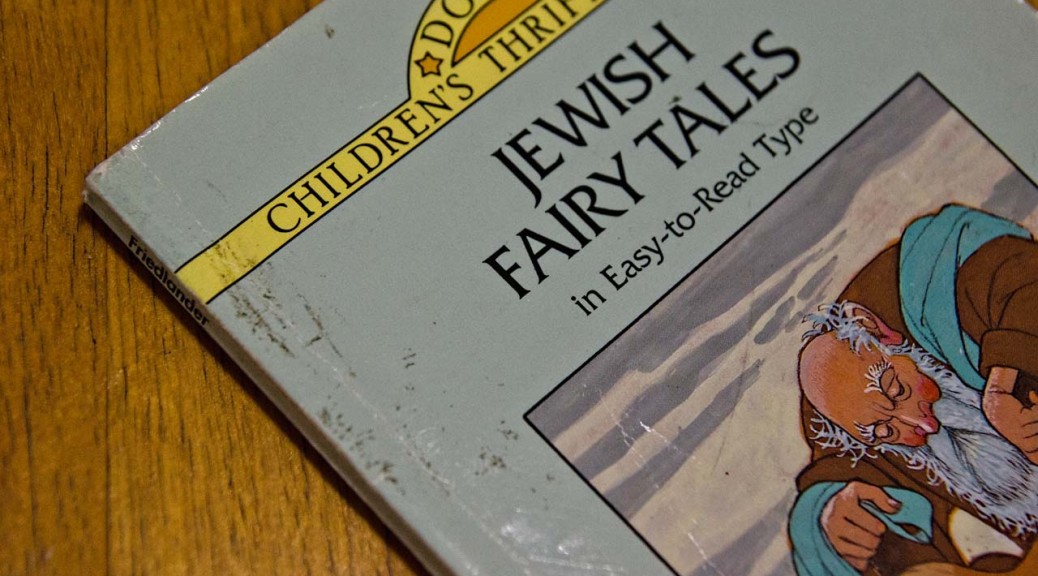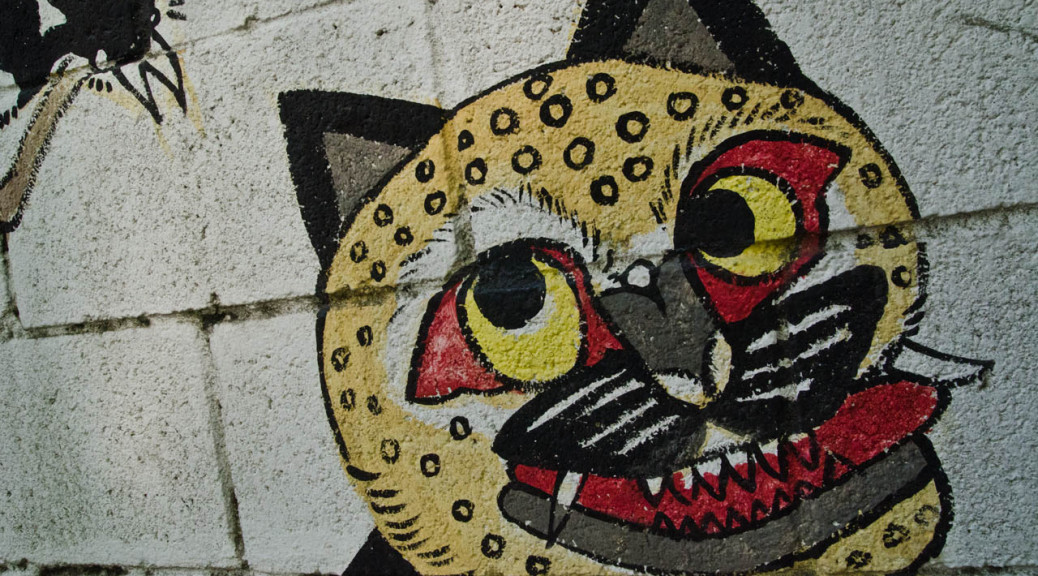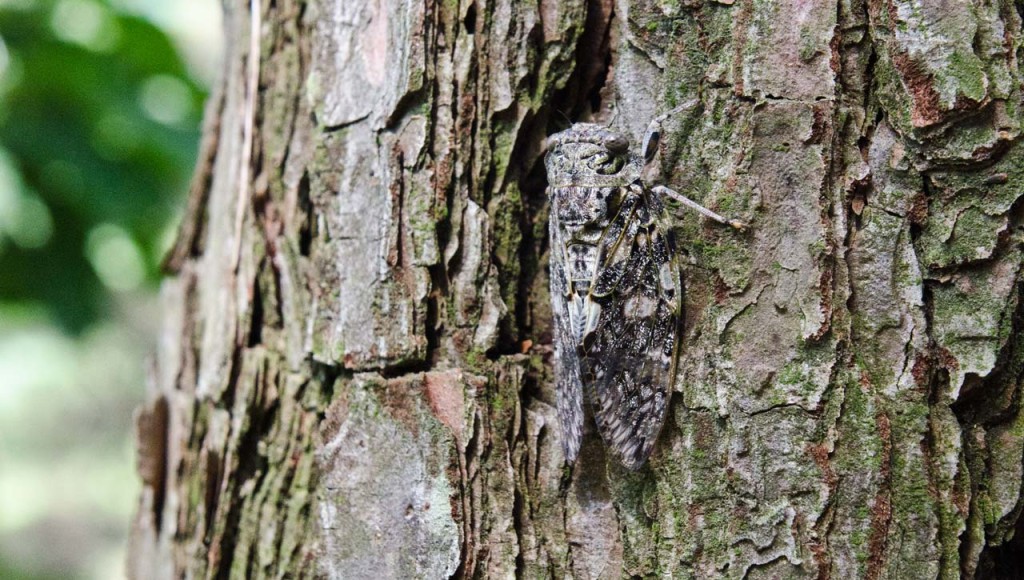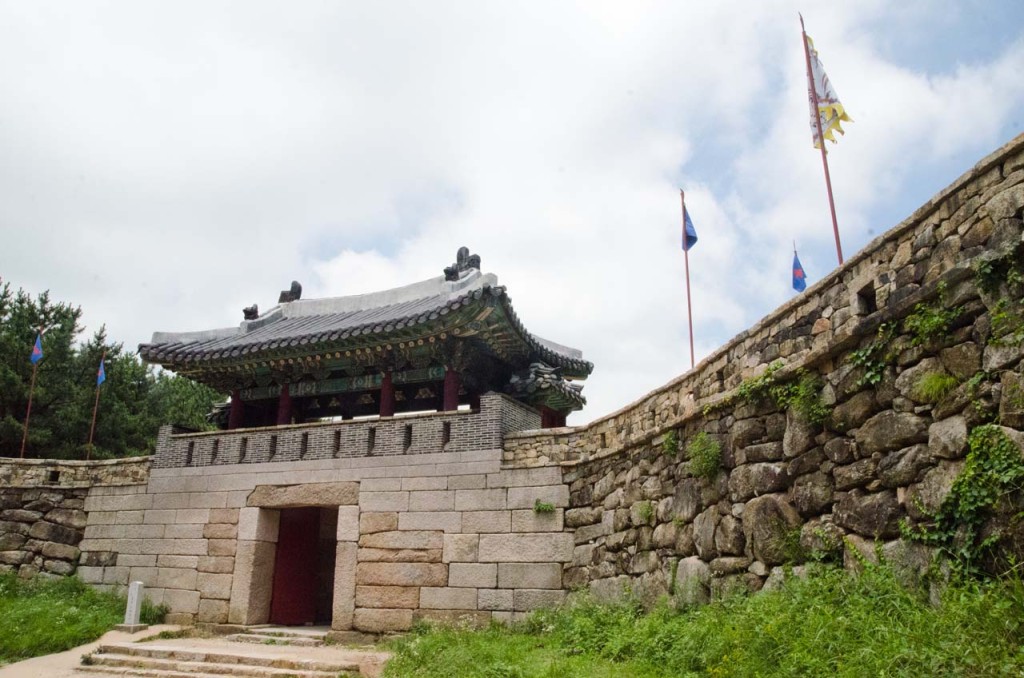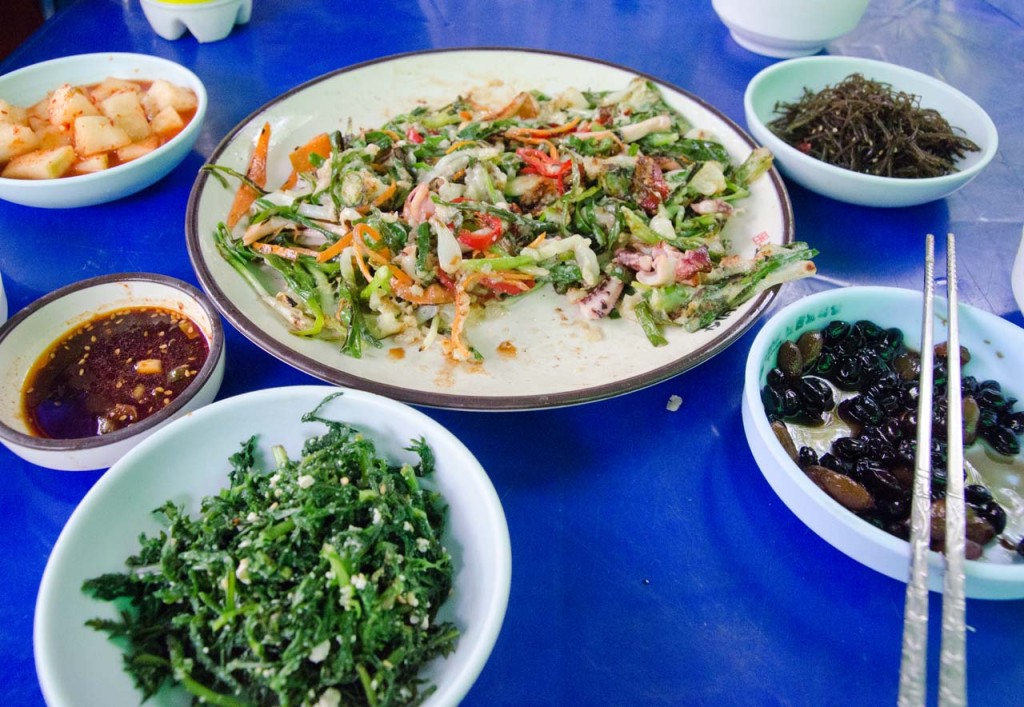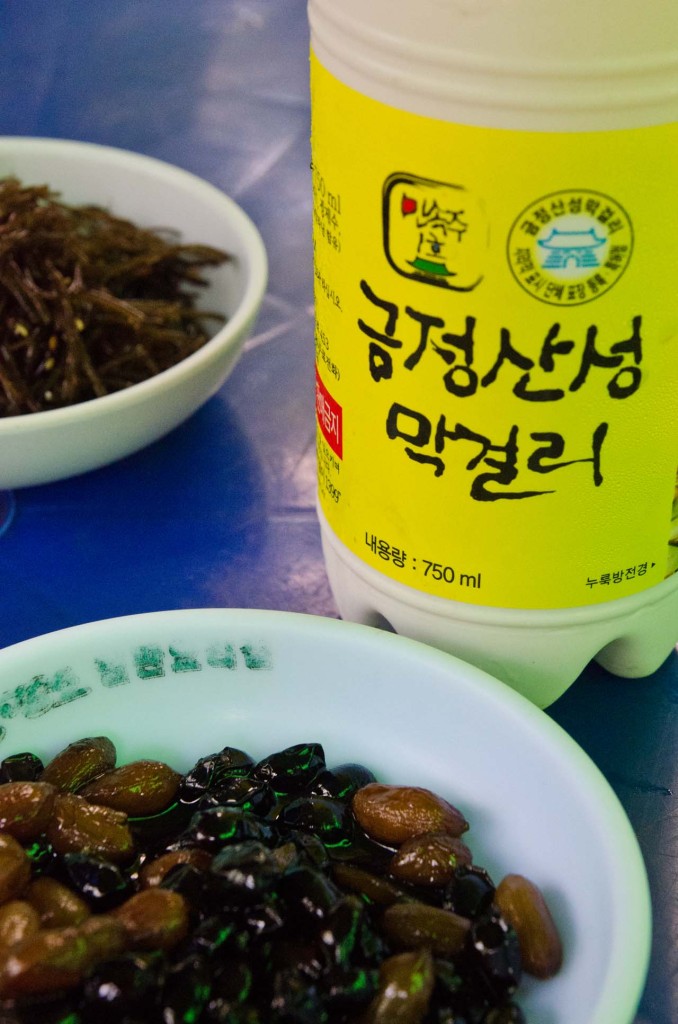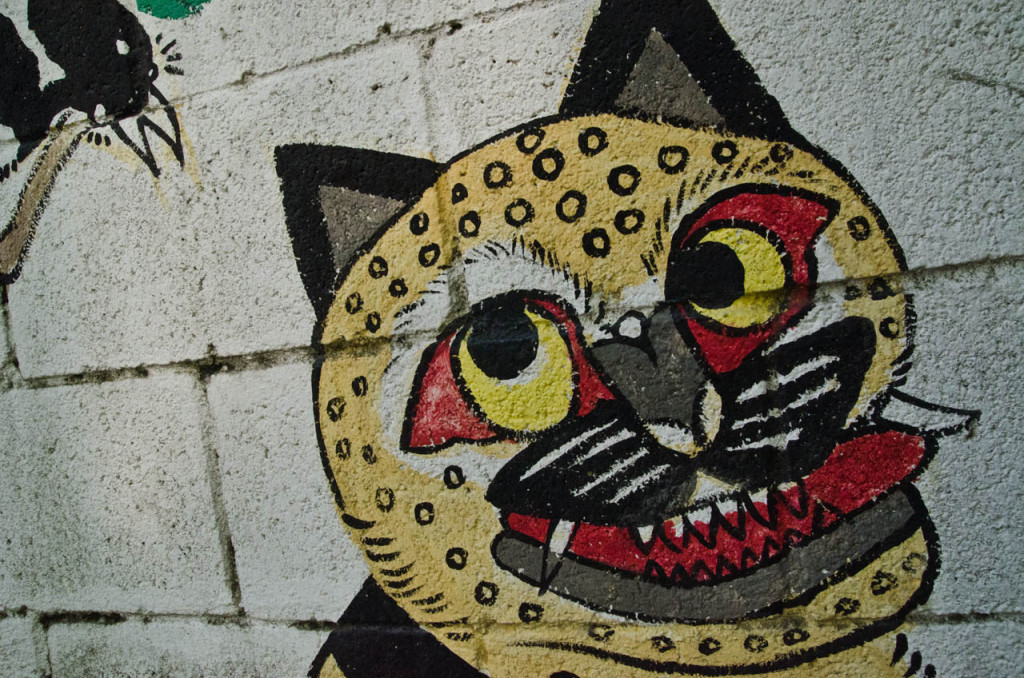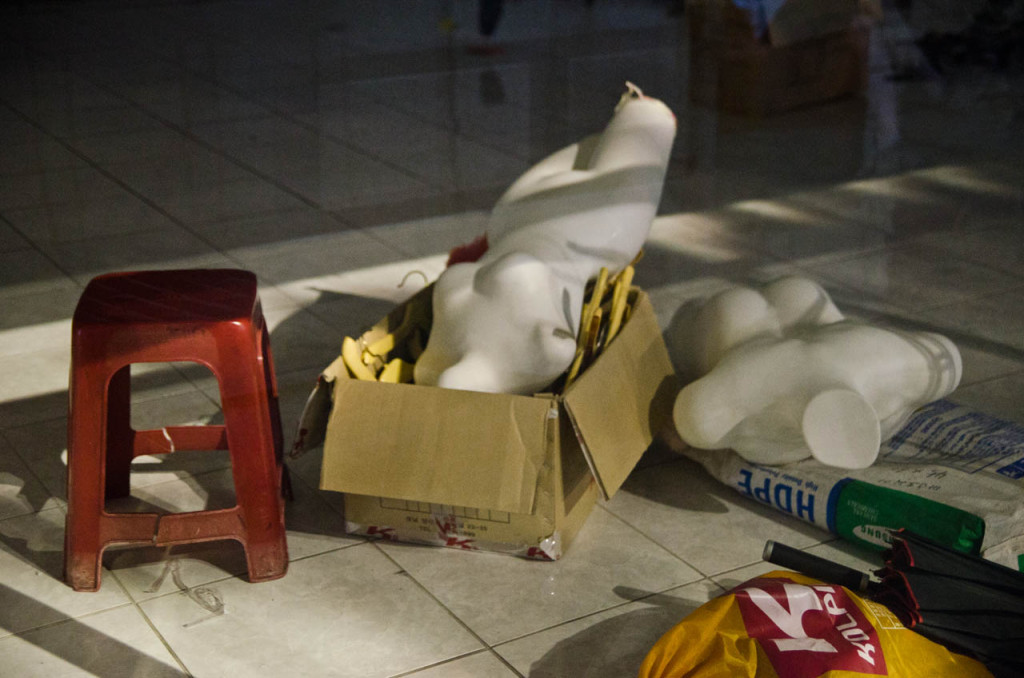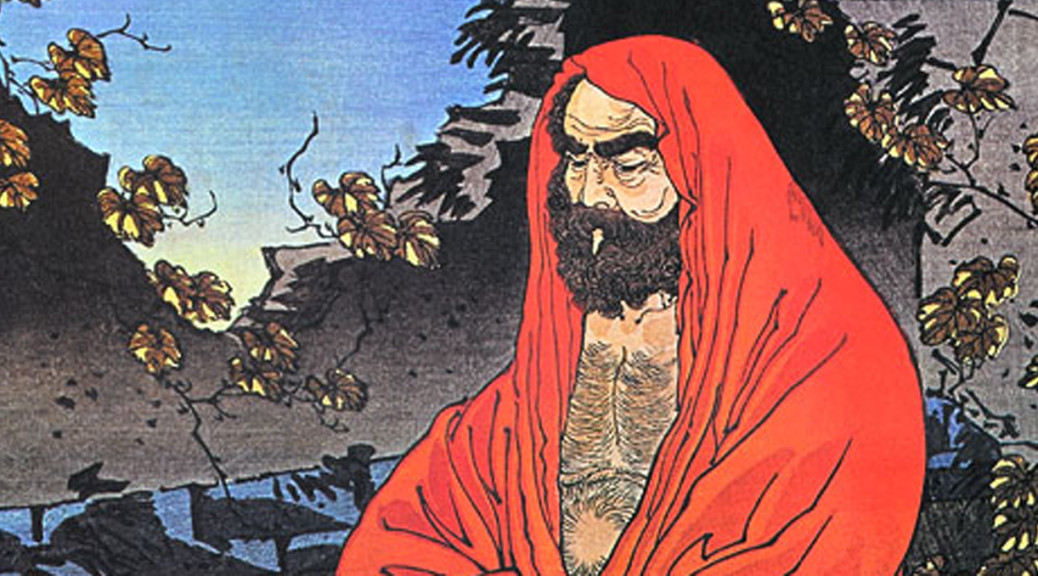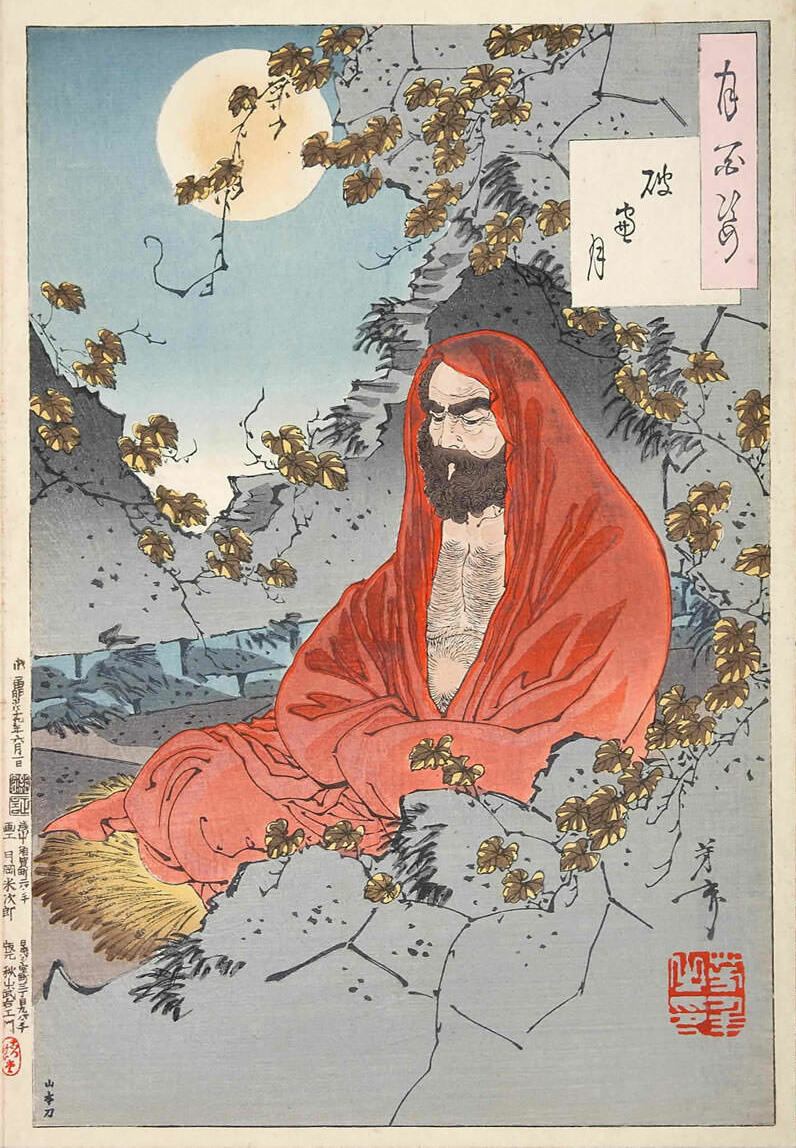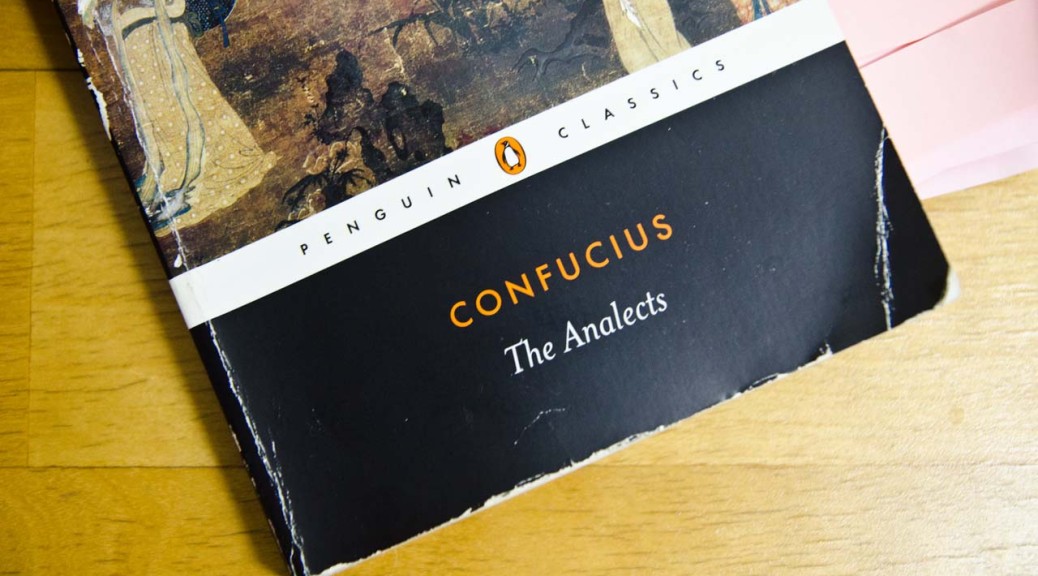Confucius, and D. C. Lau. The Analects (Lun Yü). Harmondsworth: Penguin, 1979. Print.

論語 巻二 八佾。The Analects vol.2 Hachi-itsu. via wikimedia.
(Book XI – appendix)
Book XI
10. When Yen Yuan died, in weeping for him the Master showed undue sorrow. His followers said, ‘You are showing undue sorrow.’ ‘Am I? Yet if not for him, for whom should I show undue sorrow?’
12. Chi-lu asked how the spirits of the dead and the gods should be served. The Master said, ‘You are not able even to serve man. How can you serve the spirits?’
‘May I ask about death?’
‘You do not understand even life. How can you understand death?’
16. Tzu-kung asked, ‘Who is superior, Shi or Shang?’ The Master said, ‘There is little to choose between overshooting the mark and falling short.’
Book XII
1… the practice of benevolence depends on oneself alone, and not on others.’
2… The Master said… ‘Do not impose on others what you yourself do not desire.’
4. Ssu-ma Niu asked about the gentleman. The Master said, ‘The gentleman is free from worries and fears.’
5… Tzu-hsia said, ‘I have heard it said: life and death are a matter of Destiny; wealth and honour depend on Heaven.’
7. Tzu-kung asked about government. The Master said, ‘Give them enough food, give them enough arms, and the common people will have trust in you.’ give up arms first and food second ‘Death has always been with us since the beginning of time, but when there is no trust, the common people will have nothing to stand on.’
14. Tzu-chang asked about government. The Master said, ‘Over daily routine do not show weariness, and when there is action to be taken, give your best.’
16. The Master said, ‘The gentleman helps others to realize what is good in them; he does not help them to realize what is bad in them. The small man does the opposite.’
22… The Master said, ‘Raise the straight and set them over the crooked. This can make the crooked straight.’
Book XIII
2… ‘How does one recognize men of talent to promote?’
The Master said, ‘Promote those you do recognize. Do you suppose others will allow those you fail to recognize to be passed over?’
6. The Master said, ‘If a man is correct in his own person, then there will be obedience without orders being given; but if he is not correct in his own person, there will not be obedience even though orders are given.’
13. The Master said, ‘If a man manages to make himself correct, what difficulty will there be for him to take part in government? If he cannot make himself correct, what business has he with making others correct?’
17. On becoming prefect of Chu Fu, Tzu-hsia asked about government. The Master said, ‘Do not be impatient. Do not see only petty gains. If you are impatient, you will not reach your goal. If you see only petty gains, the great tasks will not be accomplished.’
18. The Governor of She said to Confucius, ‘In our village there is a man nicknamed “Straight Body”. When his father stole a sheep, he gave evidence against him.’ Confucius answered, ‘In our village those who are straight are quite different. Fathers cover up for their sons, and sons cover up for their fathers. Straightness is to be found in such behaviour.’
19. Fan Ch’ih asked about benevolence. The Master said, ‘While at home hold yourself in a respectful attitude; when serving in an official capacity be reverent; when dealing with others do your best. These are qualities that cannot be put aside, even if you go and live among the barbarians.’
24. Tzu-kung asked, ‘”All in the village like him.” What do you think of that?’
The Master said, ‘That is not enough.’
‘”All in the village dislike him.” What do you think of that?’
The Master said, ‘That is not enough either. “Those in his village who are good like him and those who are bad dislike him.” That would be better.’
27. The Master said, ‘Unbending strength, resoluteness, simplicty and reticence are close to benevolence.’
Book XIV
1… The Master said, ‘It is shameful to make salary your sole object, irrespective of whether the Way prevails in the state or not.’
10. The Master said, ‘It is more difficult not to complain of injustice when poor than not to behave with arrogance when rich.’
12. Tzu-lu asked about the complete man.
The Master said… If a man remembers what is right at the sight of profit, is ready to lay down his life in the face of danger, and does not forget sentiments he has repeated all his life even when he has been in straitened circumstances for a long time, he may be said to be a complete man.’
20. The Master said, ‘Claims made immodestly are difficulty to live up to.’
24. The Master said, ‘Men of antiquity studied to improve themselves; men today study to impress others.’
28. The Master said, ‘There are three things constantly on the lips of the gentleman none of which I have succeeded in following: “A man of benevolence never worries; a man of wisdom is never in two minds; a man of courage is never afraid.”
30. The Master said, ‘It is not the failure of others to appreciate your abilities that should trouble you, but rather your own lack of them.’
34. Someone said,
‘Repay an injury with a good turn.
What do you think of this saying?’
The Master said, ‘What, then, do you repay a good turn with?
You repay an injury with straightness, but you repay a good turn with a good turn.’
43. Yuan Jang sat waiting with his legs spread wide. The Master said, ‘To be neither modest nor deferential when young, to have passed on nothing worthwhile when grown up, and to refuse to die when old, that is what I call a pest.’ So saying, the Master tapped him on the shin with his stick.
Book XV
1. Duke Ling of Wei asked Confucius about military formations. Confucius answered, ‘I have, indeed, heard something about the use of sacrificial vessels, but I have never studied the matter of commanding troops.’ The next day he departed.
2… The Master said, ‘It comes as no surprise to the gentleman to find himself in extreme straits. The small man finding himself in extreme straits would throw over all restraint.’
8. The Master said, ‘To fail to speak to a man who is capable of benefiting is to let a man go to waste. To speak to a man who is incapable of benefiting is to let one’s words go to waste. A wise man lets neither men nor words go to waste.’
18. The Master said, ‘The gentleman has morality as his basic stuff and by observing the rites puts it into practice, by being modest gives it expression, and by being trustworthy in word brings it to completion. Such is a gentleman indeed!’
21. The Master said, ‘What the gentleman seeks, he seeks within himself; what the small man seeks, he seeks in others.’
22. The Master said, ‘The gentleman is conscious of his own superiority without being contentious, and comes together with other gentlemen without forming cliques.’
24. Tzu-kung asked, ‘Is there a single word which can be guided to conduct throughout one’s life?’ The Master said, ‘It is perhaps the word “shu”. Do not impose on others what you yourself do not desire.’
28. The Master said, ‘Be sure to go carefully into the case of the man who is disliked by the multitude. Be sure to go carefully into the case of the man who is liked by the multitude.’
31. The Master said, ‘I once spent all day thinking without taking food and all night thinking without going to bed, but found that I gained nothing from it. It would have been better for me to have spent the time in learning.’
32. The Master said, ‘The gentleman devotes his mind to attaining the Way and not to securing food. Go and till the land and you will end up by being hungry, as a matter of course; study, and you will end up with the salary of an official, as a matter of course. The gentleman worries about the Way, not about poverty.’
34. The Master said, ‘The gentleman cannot be appreciated in small things but is acceptable in great matters. A small man is not acceptable in great matters but can be appreciated in small things.’
35. The Master said, ‘Benevolence is more vital to the common people than even fire and water. In the case of fire and water, I have seen men die by stepping on them, but I have never seen any man die by stepping on benevolence.’
37. The Master said, ‘The gentleman is devoted to principle but not inflexible in small matters.’
38. The Master said, ‘In serving one’s lord, one should approach one’s duties with reverence and consider one’s pay as of secondary importance.’
Book XVI
5. Confucius said, ‘He stands to benefit who takes pleasure in three kinds of things. Equally, he stands to lose who takes pleasure in three other kinds of things. To take pleasure in the correct regulation of the rites and music, in singing the praises of other men’s goodness and in having a large number of excellent men as friends is to benefit. To take pleasure in showing off, in a dissolute life and in food and drink is to lose.’
7. Confucius said, ‘There are three things the gentleman should guard against. In youth when the blood and ch’i are still unsettled he should guard against the attraction of feminine beauty. In the prime of life when the blood and ch’i have become unyielding, he should guard against bellicosity. In old age when the blood and ch’i have declined, he should guard against acquisitiveness.’
9. Confucius said, ‘Those who are born with knowledge are the highest. Next come those who attain knowledge through study. Next again come those who turn to study after having been vexed by difficulty. The common people, in so far as they make no effort to study even after having been vexed by difficulties, are the lowest.’
Book XVII
3. The Master said, ‘It is only the most intelligent and the most stupid who are not susceptible to change.’
8. The Master said, ‘Yu, have you heard about the six qualities and the six attendant faults?’
‘No.’
‘Be seated and I shall tell you. To love benevolence without loving learning is liable to lead to foolishness. To love cleverness without loving learning is liable to lead to deviation from the right path. To love trustworthiness in word without loving learning is liable to lead to harmful behaviour. To love forthrightness without loving learning is liable to lead to intolerance. To love courage without loving learning is liable to lead to insubordination. To love unbending strength without loving learning is liable to lead to indiscipline.’
20. Ju Pei wanted to see Confucius. Confucius declined to see him on the grounds of illness. As soon as the man conveying the message had stepped out of the door, Confucius took his lute and sang, making sure that he heard it.
21. Tsai Wo asked about the three-year mourning period, saying ‘Even a full year is too long. If the gentleman gives up the practice of the rites for three years, the rites are sure to be in ruins; if he gives up the practice of music for three years, music is sure to collapse. A full year’s mourning is quite enough. After all, in the course of a year, the old grain having been used up, the new grain ripens, and fire is renewed by fresh drilling.’
The Master said, ‘Would you, then, be able to enjoy eating your rice and wearing your finery?’
‘yes, I would.’
‘If you are able to enjoy them, do so by all means. The gentleman in mourning finds no relish in good food, no pleasure in music, and no comforts in his own home. That is why he does not eat his rice and wear his finery. Since it appears that you enjoy them, then do so by all means.’
After Tsai Wo had left, the Master said, ‘How unfeeling Yu is. A child ceases to be nursed by his parents only when he is three years old. Three years’ mourning is observed throughout the Empire. Was Yu not given three years’ love by his parents?’
22. The Master said, ‘It is not easy matter for a man who always has a full stomach to put his mind to some use. Are there not such things as po and yi? Even playing these games is better than being idle.’
24… The Master said…’The gentleman has his dislikes. He dislikes those who proclaim the evil in others. He dislikes those who, being in inferior positions, slander their superiors. He dislikes those who, while possessing courage, lack the spirit of the rites. He dislikes those whose resoluteness is not tempered by understanding.’
The Master added, ‘Do you, Ssu, have your dislikes as well?’
‘I dislike those in whom plagiarizing passes for wisdom. I dislike those in whom insolence passes for courage. I dislike those in whom exposure of others passes for forthrightness.’
26. The Master said, ‘If by the age of forty a man is still disliked there is no hope for him.’
Book XVIII
Book XIX
6. Tzu-hsia said, ‘Learn widely and be steadfast in your purpose, inquire earnestly and reflect on what is at hand, and there is no need for you to look for benevolence elsewhere.’
7. Tzu-hsia said, ‘The artisan, in any of the hundred crafts, masters his trade by staying in his workshop; the gentleman perfects his way through learning.’
9. Tzu-hsia said, ‘In the three following situations the gentleman gives a different impression. From a distance he appears formal; when approached, he appears cordial; in speech he appears stern.’
Book XX
2… The Master said, ‘The gentleman is generous without its costing him anything, works others hard without their complaining, has desires without being greedy, is casual without being arrogant, and is awe-inspiring without appearing fierce.’
Tzu-chang said, ‘What is meant by “being generous without its costing him anything”?’
The Master said, ‘If a man benefits the common people by taking advantage of the things around them that they find beneficial, is this not being generous without its costing him anything? If a man, in working others hard, chooses burdens they can support, who will complain? If, desiring benevolence, a man obtains it, where is the greed? The gentleman never dare neglect his manners whether he be dealing with the many or the few, the young or the old. Is this not being casual without being arrogant? The gentleman, with his robe and cap adjusted properly and dignified in his gaze, has a presence which inspires people who see him with awe. Is this not being awe-inspiring without appearing fierce?’
Tzu-chang said, ‘What is meant by the four wicked practices?’
The Master said, ‘To impose the death penalty without first attempting to reform is to be cruel; to expect results without first giving warning is to be tyrannical; to insist on a time limit when tardy in issuing orders is to cause injury. When something has to be given to others anyway, to be miserly in the actual giving is to be officious.’
—
Appendix 1
“According to the Tso chuan, Confucius died in the fourth month of the sixteenth year of Dike Ai (479 B.C.) p. 181.
“… Confucius’ rapid rise as an official is more likely to be the doing of his later admirers than of Duke Ting.” p. 185.
“As the Lu shih ch’un ch’iu was finished in 240 B.C., it shows that even at that date there was no generally accepted tradition that Confucius was ever prime minister or even ssu k’ung, and we should be sceptical about such traditions.” p. 187.
see p. 190. illustrative story and charismatic figures.
This story is used by Han Fei Tzu to illustrate the point that the ruler should get rid of anyone beyond his power to control. According to Legalist (法家) theory, reward and punishment are ‘the two handles’ by which a ruler can control his subjects. If a man does not respond to either, there is nothing the ruler can do either to encourage or to deter him. Such a person is what the world admires, but in the eyes of the Legalist ruler, he only resembles an excellent man but is not the genuine thing.” p. 192
Figure of Confucius being used to further Legalist ideas “advocating the suppression of and execution of a potential trouble maker, and act which contradicts everything he stood for.” p. 193.
Appendix 2
“the kind of ability to think for oneself that Confucius valued.” p. 200.
“ability to think and eagerness to learn are two sides to the same activity,” p. 201.
Confucius and the funeral of Yen Yuan. p. 202.
Followers of the Confucian tradition in subsequent ages placed excessive emphasis on outward conformity to the rites.” p. 213.
“Though Tzu-hsia was given to book learning, he did not place it above virtuous conduct.” p. 214
Tseng Tzu: “A Gentleman must be strong and resolute, for his burden is heavy and the road is long. He takes benevolence as his burden. Is that not heavy? Only with death does the road come to an end. Is that not long? (VIII.7).” p. 215.
“As we have seen, Tseng Tzu showed greater moral earnestness than intellectual ability while Tzu-hsia showed greater concern for minutiae in the rites than broad moral principle. Is is, perhaps, because of the character of these two disciples that later Confucianism was coloured by a certain staidness and pedantry.” p. 219.
To read:
Mencius (孟子)

Laozi (老子) via wikimedia,
Tao te ching (道德经)
Confucius (K’ung Tzu) (孔子)
“Mount T’ai (泰山)… In the central part of modern Shantung and one of the most revered mountains in China.” p. 243.
“Pi Kan, XVIII.1, i.e.. Prince Pi Kan, the uncle of the tyrant Chou (q.v.), who is said to have had him killed and his heart taken out to see if the popular belief that the heart of the sage had seven apertures was true.” p. 243.
“Po Yi and Shu Chi’i were the sons of the Lord of Ju Chi. The father intended Shu Ch’i, the younger son, to succeed him, but when he died neither of his sons was willing to deprive the other of the succession and they both fled to the mountains and when King Wu overthrew the Yin they starved themselves to death on Mount Shou Yang, being ashamed to eat grain of a dynasty that came to power through the use of force.” p. 244.
Save
Save


